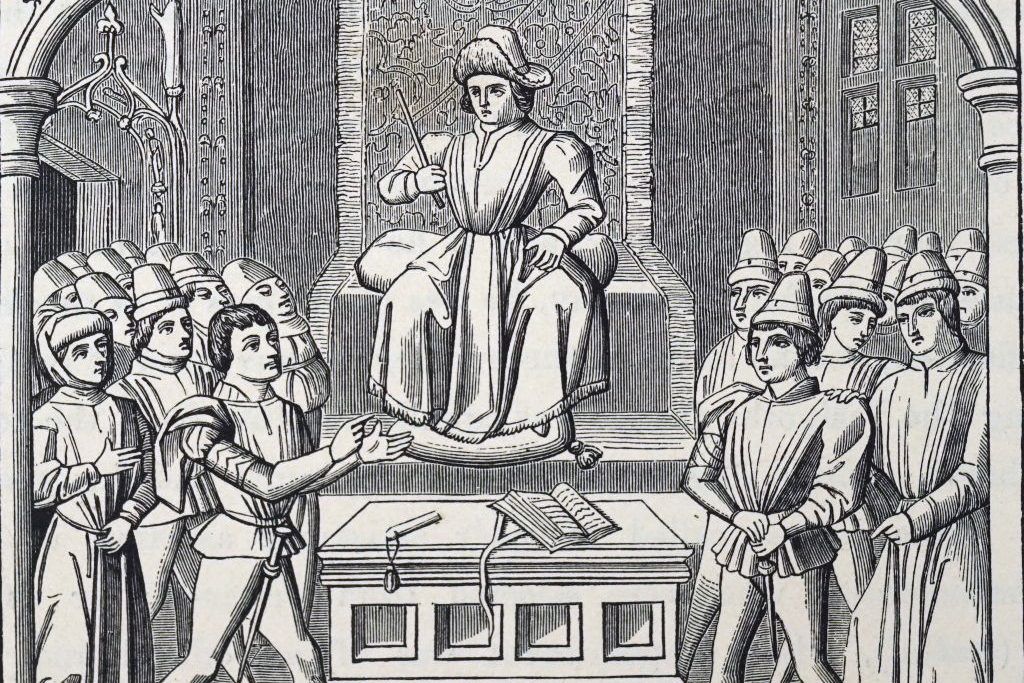The idea of no-fault divorce had not yet had its day during medieval times, but there were ways to get out of an unhappy marriage in, say, the 1400s without staging your own death or outright disappearing. Women could apply for an annulment of their marriage if their husbands turned out to be impotent — which sounds like a relatively progressive feature during a point in history not known for being terribly progressive. (More on that shortly). That, however, begs the question: how would one go about proving that a man is impotent?
At Narratively, Carissa Harris has explored this very particular corner of history. (She’s also the author of a book, Obscene Pedagogies: Transgressive Talk and Sexual Education in Late Medieval Britain, which offers an unexpected spin on all things medieval.) Harris’s research turns up a host of interesting legal cases, as well as giving a sense of the wide array of people who might be called upon to determine if a man was truly impotent.
“Often the witnesses in impotency cases were women, either married female acquaintances, widows, or local sex workers,” Harris writes. Sometimes they were men, asked to watch the accused try to have sex; in still other cases, doctors were called in to make a determination. This appears to have been a cottage industry in the England of the time, with one physician offering his colleagues advice that would likely turn heads today.
While the details of the cases Harris discovered are indeed fascinating, arguably the most interesting takeaway from her article are the ways in which attitudes about sex have shifted over the years. Though medieval England was far from utopian when it came to gender or sexuality, Harris’s findings reveal a number of sex-positive qualities present there. There are plenty of strange and salacious details present here as well, but perhaps the most surprising is that those details exist at all.
Thanks for reading InsideHook. Sign up for our daily newsletter and be in the know.
















